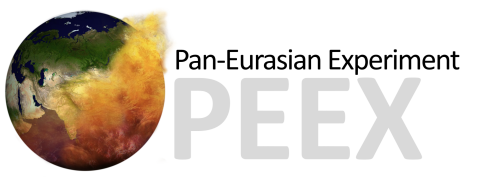Megapolis – heat and pollution island: interdisciplinary hydroclimatic, geochemical and ecological analysis (MEGAHAPI, 2021-2023)
The Megagrant of the Russian Federation granted to the Moscow State University (MSU) and led by Academician, Prof. Markku Kulmala performs state-of-the-art interdisciplinary research for an integrated assessment and analysis of various pollutants spreading in urban areas. This project “Megapolis – heat and pollution island: interdisciplinary hydroclimatic, geochemical and ecological analysis” (2021-2023; MEGAHAPI; https://megahapi.ru)” leads to stablishing a new interdisciplinary scientific unit – the Laboratory of Urban Ecology and Climate at MSU. See more details about the megagrant events at: https://megahapi.ru/event
The recent large-scale urbanization and industrialization of Russia, and in particular, the Moscow metropolitan area has substantial influence on air quality during last decades due to increased emissions from various industrial activities, energy production, and traffic in megacity. Local effects of the urbanized environment determines qualitatively different features that are manifested in the atmosphere above and around the city forming mesoscale structures and changes in the wind, temperature and humidity patterns, structure of the atmospheric boundary and surface layers, radiation regime, content and composition of atmospheric pollutants. All these have influence on the population’s health. The development of methods of observations and numerical modelling of the urban heat and pollution island at different spatio-temporal scales of the boundary layer, landscapes and water systems in these conditions becomes one of the most urgent problems aimed at understanding complex physio-chemical processes of formation and development of the pollution and heat island.
Main goal: to develop novel approach of integrated hydrometeorological, geochemical and environmental analyses of megacities to provide state-of-the-art observation and modelling of urban air-soil-water exchanges. This will be done by establishing a new Laboratory of Urban Ecology and Climate at MSU for studying physical and chemical processes in the atmosphere, boundary layers, soils, and surface water and their comprehensive impact on megacities’ health from observations via modelling towards advanced diagnostics and forecast.
Main objective:
The Laboratory of Urban Ecology and Climate will build a system for a comprehensive analysis of the urban environment, linking together observation systems for atmospheric pollution, precipitation, soil, road dust and surface water, and the development of advanced methods for modeling the dynamics of pollution.
Main tasks:
(1) Development and implementation of approaches and methods for integral research and systemic monitoring of the urban environment, including the boundary layer of the atmosphere, landscapes and water systems.
(2) Analysis of the diurnal and seasonal dynamics of the formation, accumulation, transformation of aerosol and anthropogenic emissions products – black carbon, sulfates and dust microparticles, including fluxes from the hydrosphere and pedosphere, taking into account the variability of the atmospheric boundary layer and the features of the spatial and temporal distribution of the heat island.
(3) Study of the relationships between atmospheric aerosol, solar radiation and heat island in urban environment, taking into account its morphology. Prediction and diagnosis of spread of pollution and aerosols of various origins with spatial downscaling to the level of individual streets and buildings, as well as assessing potential health risks due to exposure urban island of heat and air pollution.
(4) Ecological and geochemical assessment of the state of soils, road dust, snow cover and surface waters with the determination of the levels and spatial distribution of pollutants (heavy metals, metalloids and polycyclic aromatic hydrocarbons) as a result of intensive economic activity of the city and in connection with the diurnal and seasonal dynamics of urban atmosphere.
(5) Development of a unified methodology and integration analysis of the formation of chemical properties of the components of the urban environment (atmosphere (aerosols, precipitation, snow), urban soils, road dust, surface waters).
Contact Information
- PI – Academician, Prof. Markku Kulmala, Institute for Atmospheric and Earth System Research, University of Helsinki, Helsinki, Finland
- e-mail: markku.kulmala@helsinki.fi
- https://researchportal.helsinki.fi/en/persons/markku-kulmala
